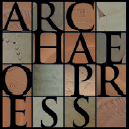
Publishing Scholarly Archaeology since 1997

Download Sample PDF
H 290 x W 205 mm
712 pages
320 figures, 21 maps, 873 catalogue images (colour throughout)
Published Aug 2023
ISBN
Paperback: 9781803275031
Digital: 9781803275048
Keywords
Rock Art; Later Prehistory; Tibet; Tibetan Archaeology; Cultural History; Iron Age; Late Bronze Age; Eurasia; Heritage
Related titles




A Comprehensive Survey of Rock Art in Upper Tibet: Volume I
Eastern Byang thang
Focusing on the eastern part of the region, this is the first in a series of five volumes that comprehensively document rock art in Upper Tibet. It examines a panoply of graphic evidence found on stone surfaces, supplying an unprecedented view of the long-term development of culture and religion on a large swathe of the Tibetan Plateau.
Contents
Precis
General Introduction
About this Rock Art Inventory
Rock Art and Associated Sites of Lake Gnam mtsho (S1–S12)
Inventoried Rock Art Sites
Bkra shis do chen (S1)
Bkra shis do chung (S2)
Rta mchog ngang pa do (S3)
Innominate (S4)
Innominate (S5)
Innominate (S6)
Lug do (S7)
Ra ma do (S8)
Stong shong phug (S9)
Se mo do (S10)
Rigs lnga do (S11)
Lce do (S12)
Sha ba brag (S13)
Kong chung (S14)
Gnam g.yang phug (S15)
Lha ris sgrub phug (S16)
Slob dpon phug (S17)
Sho lo phug (S18)
Lha ’dre phug (S19)
Gzims phug btsan khang (S20)
Dpal gzims phug (S21)
Rdo ’khor phug pa (S22)
Dgon ro dmar lding (S23)
Lha ’dre tshogs khang (S24)
Dar lung phug pa (S25)
Skyid sgrom sgo gru bzhi (S26)
Sgar gsol brag phug (S27)
Chu ro (S28)
O rtsal phug (S29)
Bibliography
Catalogue of Images
About the Author
John Vincent Bellezza PhD is a specialist in the archaeology and cultural history of the highest reaches of the Tibetan Plateau. Author of 12 previous books and many academic articles on these subjects, he spent altogether eight years in Tibet engaged in fieldwork between 1984 and 2019. During the course of his explorations, he became the first westerner to visit the sources of the four major rivers arising in western Tibet and is perhaps the only person to reach most of the islands in the big lakes of the Tibetan tablelands.
Reviews
'This book, along with the four other sister-volumes will provide future generations of researchers with a comprehensive database to work with, especially those undertaking fieldwork in neighbouring southern China and northern India. The book is lavishly illustrated throughout, providing the reader with an excellent insight into the style and technique of each of the 29 sites surveyed. In terms of methodology and dissemination, Bellezza has laid the foundations of how a fieldwork project such as this should be published.' – George Nash (2024): Current World Archaeology 124

 Add to wishlist
Add to wishlist
